Interview with Dr. Dwain Morris-Irvin, conducted by local REALTOR® Keith Kurlander
I have a research and development company that does immunotherapy for cancer and it's called StemVax and I also have a skin care company that I'm a part of called Global Stem Care Laboratories, there we provide skin care products, primarily cosmetic products right now, but also medically related products to improve skin down the road once we've completed the R & D. I am the founder of both companies and Chief Scientific Officer for both companies.

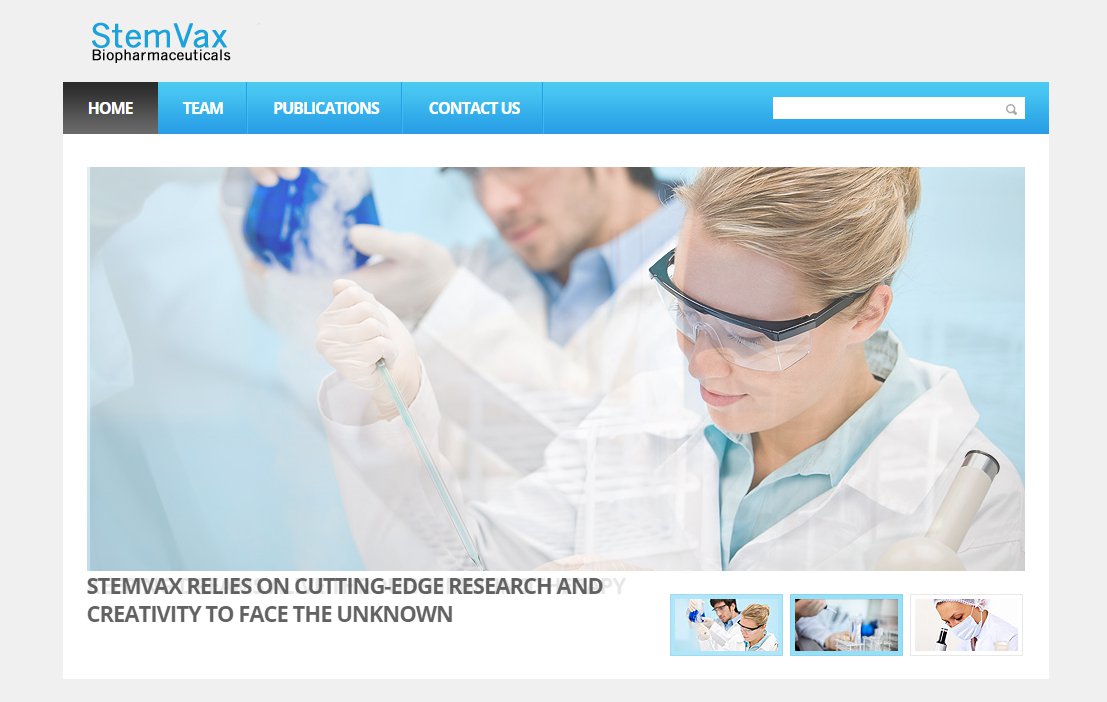
I'm a stem cell scientist and developmental neural biologist, effectively I focus in on how the brain develops, during development as well as how the brain ages as we age and then I more specifically look at how brain diseases can be treated with new technologies. Stem cell technology or the immunotherapy, this is a therapy where we take advantage of the persons own immune system and we manipulate it in a way to try and treat a disease. So all of the science developed when I was in Grad school at UCLA, getting my Doctorate at the School of Medicine and doing a research project on how the stem cells of the brain make brain tissue. And then from there I went on to Sweden to work with a big name in Parkinson's disease to figure out how can we take brain stem cells and make the cells that are lost in Parkinson's disease. From that I came back to Los Angeles and I worked at Cedar-Sinai Department of Neurosurgery focusing in on some brain work as it relates to Parkinson's disease and looking for treatments via the immune system and also I began to start focusing in on brain tumor patients and how we could attack brain tumors better than with chemo or radiation. We used the immunotherapeutic approach where we would take the tumor from the patient's brain, we would take proteins from that tumor, take immune cells from the patients' blood and we'd mix those proteins from the tumor with the immune cells, activate those immune cells to kill the tumor cells and then give those activated immune cells back to the patient. And we've shown in some trials and pre-clinical trials that you can significantly increase the survival of patients who have brain tumors with this new technique but it's still in clinical trials so I developed a couple of therapeutic approaches that we translate to patents and intellectual property and then with those patents we did a spinoff company called StemVax whose sole objective is to promote that immunotherapeutic approach to treat brain cancer through clinical trials so that therapy can become available to people in the market. The trials take 10 to 15 years in the states and on average costs $500,000,000 during that time period. What scientists like myself do that are at academic institutions or at hospitals and doing research, once we get to a certain stage of development with the technology we will do a spinoff company and approach venture capital folks as well as bigger pharmaceutical companies to get involved to help us get through that 10 to 15 year critical trial period and come up with the half billion dollars. So that company launched about 2 years ago coming out of Cedar-Sinai and I'm very focused on that. Now we need to raise money to initiate clinical trials and one approach we're using is to raise money besides the traditional ones is to actually utilize some other stem cell technologies that have a good promise for making revenue and utilizing revenue generated from that to fund our projects in brain cancer. I partnered with a big name in cosmetic chemistry Dr. Ron DiSalvo, he actually reached out to me and asked if there were stem cells in the skin and if they could be activated with cosmetics to improve the appearance of your skin for the fine lines, wrinkles, spots, etc. It wasn't something that I focused in on but the answer was yes, and because of my relationship with Dr. DiSalvo over time we decided to take on this side venture, with the means to create the revenue from the cosmetics we develop with this new technology and that would fund the vaccine research for brain cancer. We've already been licensing products and getting fantastic results and now we're trying to move that into the hospital.
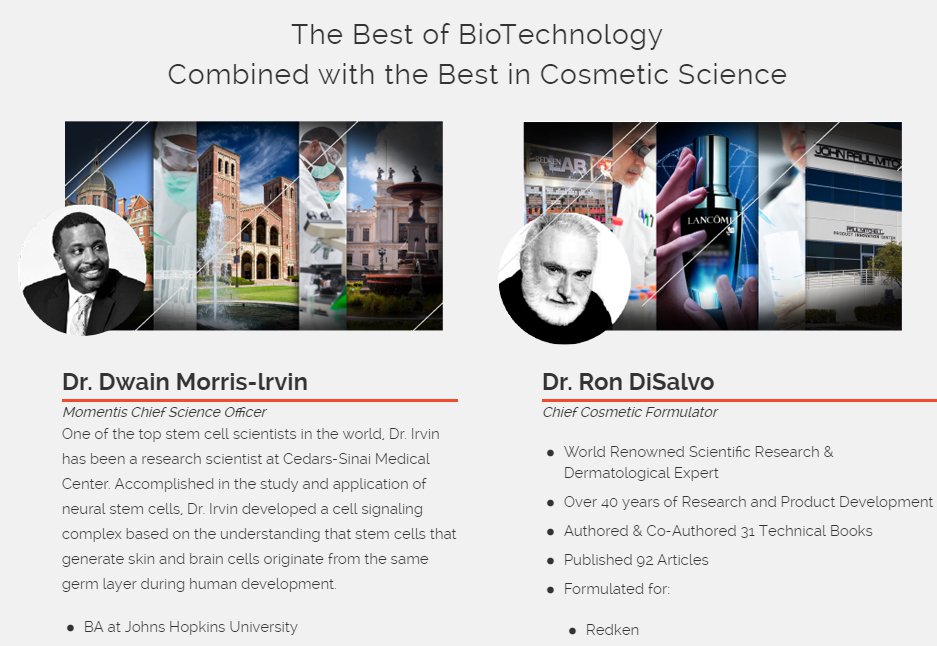
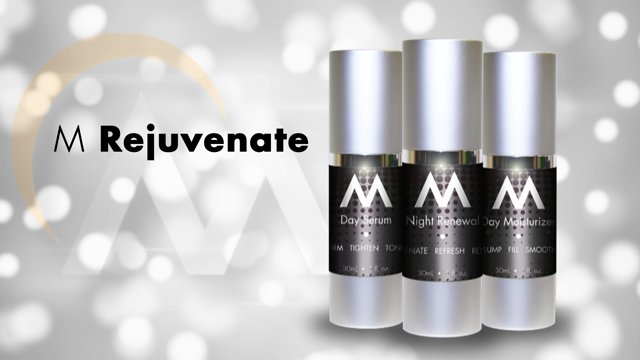
So there are products available right now, we've had 2 licensing agreements to companies that sell products, one is called Momentis.net for the skin care products I've developed and licensed to that company and Global Stemcare Laboratories will be launching their separate products online at gsclabs.com and you'll be able to purchase the products directly from the company.

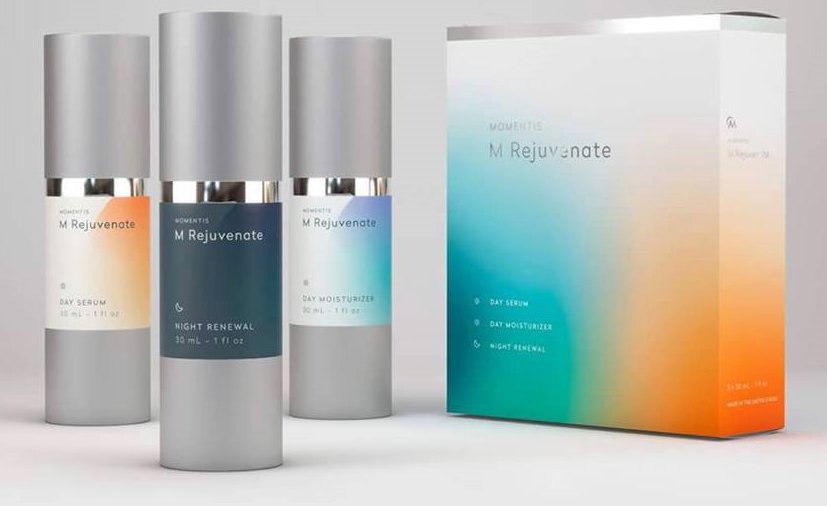
I've always been excited and motivated about trying to take whatever I learned from school and academic training and making a difference in peoples' lives. I grew up in Harlem and parents didn't directly go off to college, my father had to go to a historically black college to get his degree and so they put a lot of effort and time into their children getting a fair amount of education and in Harlem that was a bit of a challenge in the 70's. One thing I can say is that during that time is that a lot of people from the community, whether it be the church or just neighborhood leaders or people from other parts of New York city that were interested in helping out kids in Harlem would come to the schools I was attending and would give talks and lectures to try and motivate us and keep us interested in school. So that helped me achieve my goals on an academic level and I never forget those people who came in and encouraged and motivated me to stay focused. So I always kind of wanted to do what they did for the next generation once I had gotten to be old enough and so now as a scientist I'm very much interested in understanding how the body works particularly the brain, but I'm interested in understanding how it works in order to treat a disease not to necessarily to provide new information for people. So my motivation has always been take what you learn, whatever field that is, and try and make it useful for other people. My interest in the brain sort of came in over time. One thing I've realized after working on cancer for the last 10 years is that how long it actually takes to get from an idea to actually having a new cancer drug available for people and brain cancers a really bad cancer. The most common adult brain cancer has a 2 year survival rate after diagnosis, even though chemo has improved over the last several decades and the way we do radiation and surgical techniques no matter what, it seems the surgeon takes the tumor out, we give the patient chemo and radiation and the tumor grows back almost all the time and so this has been a real challenge and a real problem for everyone. So trying to come up with a new cure for that etc. has been my primary push and objective but again it takes so long. I had a discussion with the chairman of my department about 4 years ago saying we've been at this for 8 years and it's going to take me another 5 years to start clinical trials and those take about 10 plus years and I'll be like 60 by the time we get this to market and by then my brains old and technologies old, we've got to be able to do something faster and sooner. Well it wasn't until I started looking into what are cosmetics and the FDA rules and regulations that it became clear to me that there may be a mechanism by which all the information we've learned through skin stem cells and skin biology can be translated into a cosmetic products and people can benefit from those in a year or two's time as opposed to making it into a drug where it would take 10 to 15 years to go through clinical trials etc. So that information really got me motivated to pursue cosmetics and skin care products and to introduce the new stem cell technology into those products so people can benefit from those straight away.
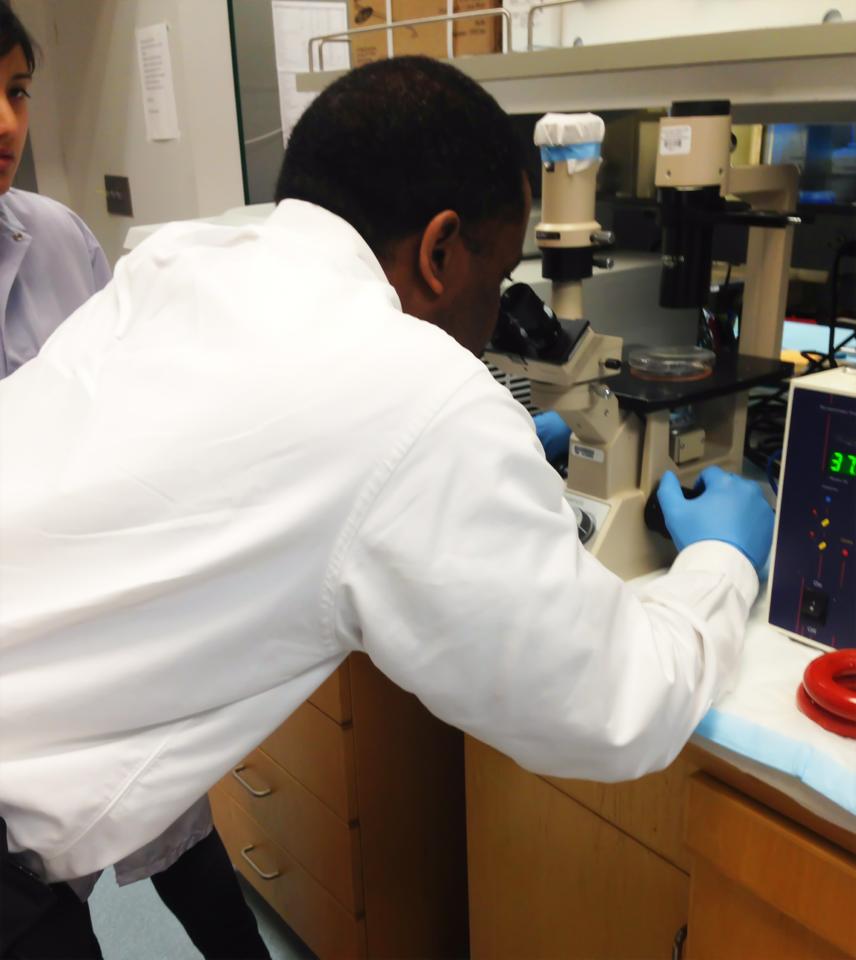
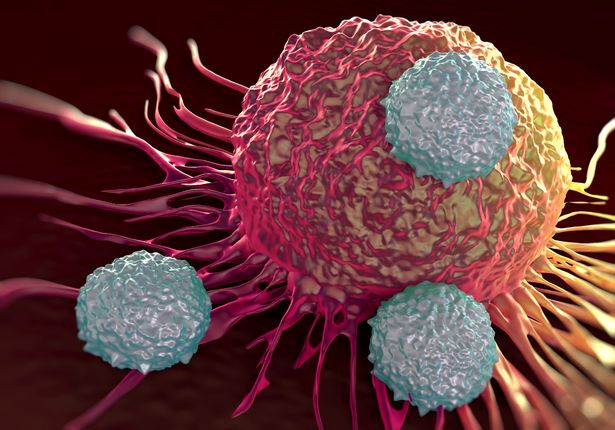
What's surprised me the most is how effective the new cosmetics have been and the positive response we've been getting from those who have utilized the products, it's been amazing. As a cosmetic you can only make claims that you've improved the appearance of the skin but people who have had eczema and psoriasis and these other skin disorders have used these products and noticed significant enhancement or improvement of their conditions. These are people who have been prescribed typical drugs through their doctors and had had minimal success and now they're using this cosmetic, that makes use of stem cell biology and they're finding they're having very positive effects over what they had been prescribed, which was the whole objective for getting into this. Even though we can't make these claims the potential does exist within those cosmetics and hopefully enough people will become aware of this and will use more and more of these products.
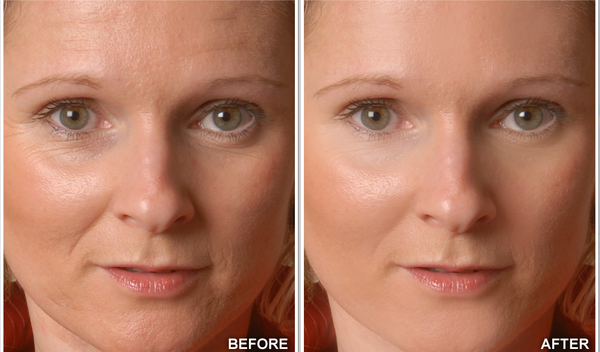
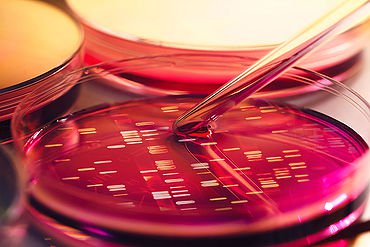
Absolutely, most of these drugs because it's tough to really know how these diseases or skin disorders develop so a global or blanket approach is typically to provide some sort of immune suppressors to minimize the immune response that ultimately leads to the damaged skin area. And those immune suppressant drugs or steroids have a lot of side effects, really bad side effects, so it limits your ability to take these drugs orally where they may work better or you have to use them topically at the site of the damage and even that has side effects that people complain about.

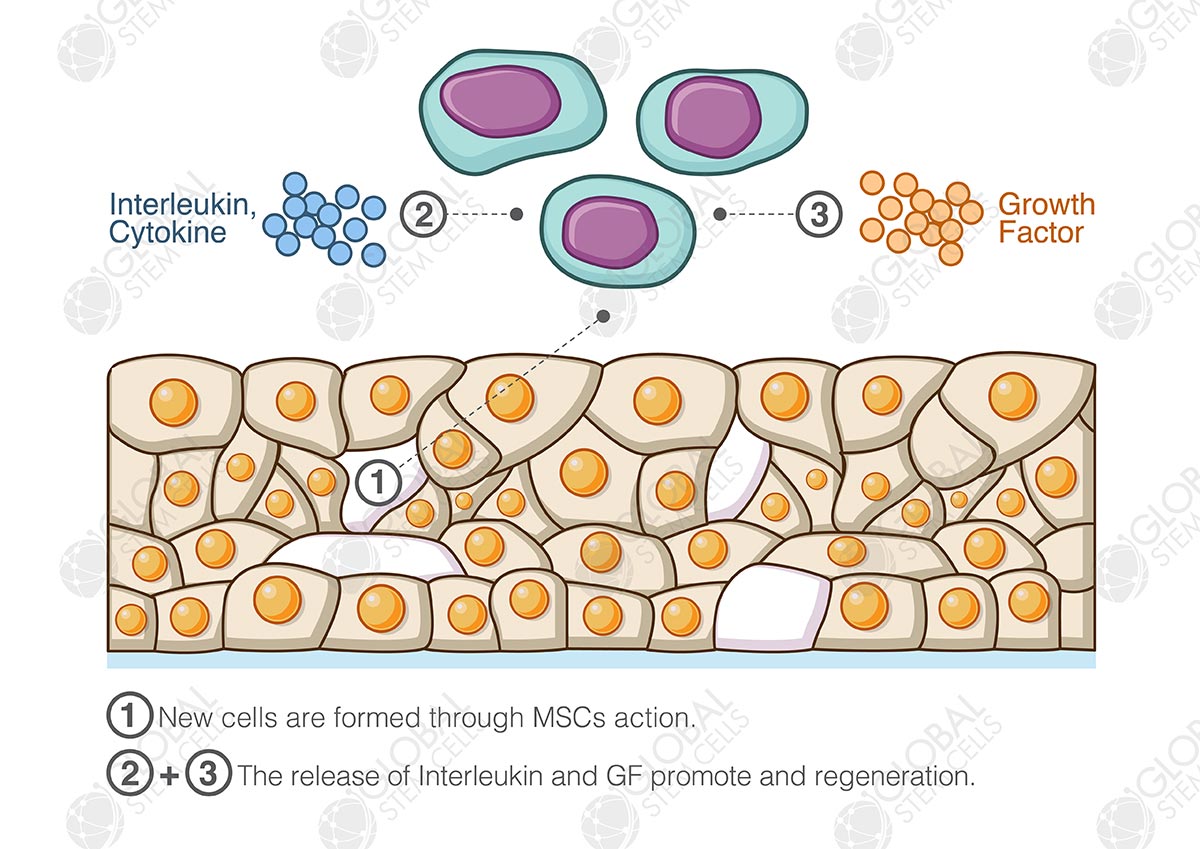
You know the culture here is pretty heavy on turning to prescribed drugs or over the counter drugs to treat the common cold etc. and that may be different then the cultures in other countries. It's really tough for a person like myself to understand really why that is and what the underlying issues are behind that. What I try to focus in on is coming up with something that is healthy, that is biological and isn't necessarily a traditional drug that you would get from the pharmacy or generated by a pharmaceutical company. For example there's certain things with plants and with your diet that can significantly affect your health and make differences to how you respond to different disorders or diseases. And so we try and stay as natural as possible, understand the biology in a way that, without having to take prescribed medicines, we can make a difference in their lives and these cosmetics allow you to do that. We are a global company and we are trying to get our products into Asia, China and Europe. in fact they are being sold in England right now.
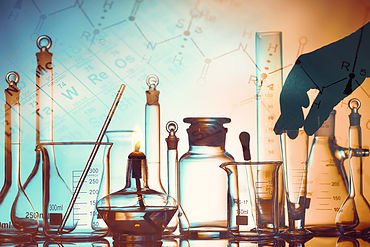

We've moved past that, it never really was an issue, really it was a political discussion centered around misinformation. 15 years ago we suggested that the embryonic stem cell, that came from a certain region of the embryo could be used to generate any cell type found in an adult body or child for that matter. It turns out that the stem cells derived from these embryos come from very early stage embryos. After the sperm meets the egg the cell goes through multiple cell divisions and it effectively starts off as a ball of cells, right when there starts to be a process of differentiation, the cells look different and they have spaces so it's not just a uniform ball anymore, that's around the time when we isolate these stem cells. So it turns out that by the time a woman knows she's pregnant the embryos well beyond the stage that we can grab those stem cells. So the statement that the stem cells are coming from aborted fetuses is not even an issue because those cells in an aborted fetus would be way too late to attain those stem cells. Those stem cells were obtained when a egg from a donor bank and a sperm from a donor bank were put together in a laboratory and then the fertilization process was started and then in the early stages of development the stem cells were collected so that was the misinformation to the public "Oh, they're coming from aborted fetuses" and now there'll be a black market and it was all rubbish. Now having said that, it's been said that you put an obstacle in front of scientists and they figure out a way to go around it, so some would argue at the time, the political powers that be said we'll put the roadblock up anyway, they'll figure out a way to go around it, and we did, so roughly 5 to 10 years later we figured out a way to take cells, regular cells, like your skin cell for example, or scrape the inside of your mouth and grab some cells, and we figured out a way to differentiate those cells, reprogram them, to behave like those embryonic stem cells. So now we don't need the embryos anymore.
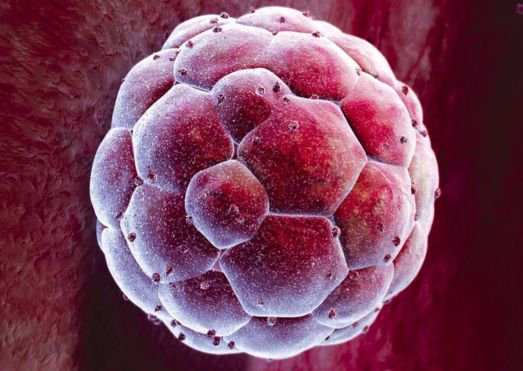
Here's what we've learned, for example if we take a cell from you and convert it to a stem cell and then we're going to treat Dwain with that stem cell, it turns out that if you take that stem cell and put it into my body my immune system may not recognize it as something foreign but the second that stem cell started to become something, maybe a skin cell or a blood cell in my body, once it starts differentiating then it's going to express proteins and things that Keith codes, not the Dwain codes and then my immune system will reject it. So this new technology with isolating the stem cell from the individual patient to treat that patient creates no immune response.

Our cosmetics do not have stem cells in them, what we do have in there are proteins and signaling molecules that when you put them on to your skin they get delivered to the deeper layers of your skin where the stem cells divide and they communicate and instruct your stem cells as to what to do. So that's what's unique and interesting in the technology, there's no cells in the cosmetics but we do have stem cell signaling factors in the cream that are protected and are in these vehicles to allow them to transverse through your skin, which is a multi cellular area to get to the area where the stem cells and their daughters are. It turns out that your skin cells die every 30 days and those cells have to be replaced, the cells that replace them are the stem cells that sit in your skin. So as we age the stem cell function changes, remember when you were 5, you'd cut yourself and you'd be healed with no scar in a matter of days but by the time you're a teenager you may cut yourself and see a scar, well it turns out as you get even older you start to develop lines and wrinkles and spots without any damage, that's because the environment for your cells is different and the skin cells have aged a bit so the numbers change and their function change and they don't repair the skin as well as they used to. So we try to put in signals to instruct them to do a better job of repairing like when you were a kid.

No, it's not science fiction at all, at least the idea's not. It turns out that we have different stem cells for different parts of the body and they behave differently than others so it's really tough to deliver a drug or something that you would take orally that would access all the tissues and organs at just the right concentrations to instruct the cells to do everything good. It turns out that your brain, skin, G.I. tract etc. all have their own set of stem cells so right now we're trying to target the individual compartment of stem cells and get them to do something that's good and healthy for the patient. So for now the skin, we target the skin through skin products, we're designing body lotions, we're designing eye creams and products for shaving all the different issues one has with their skin. If we think we can address those issues with the use of these new cosmetics then we'll go after that. Now when it comes to the gut and those stem cells and the brain and those stem cells we're in the process of developing nutritional products that would target those specific areas.
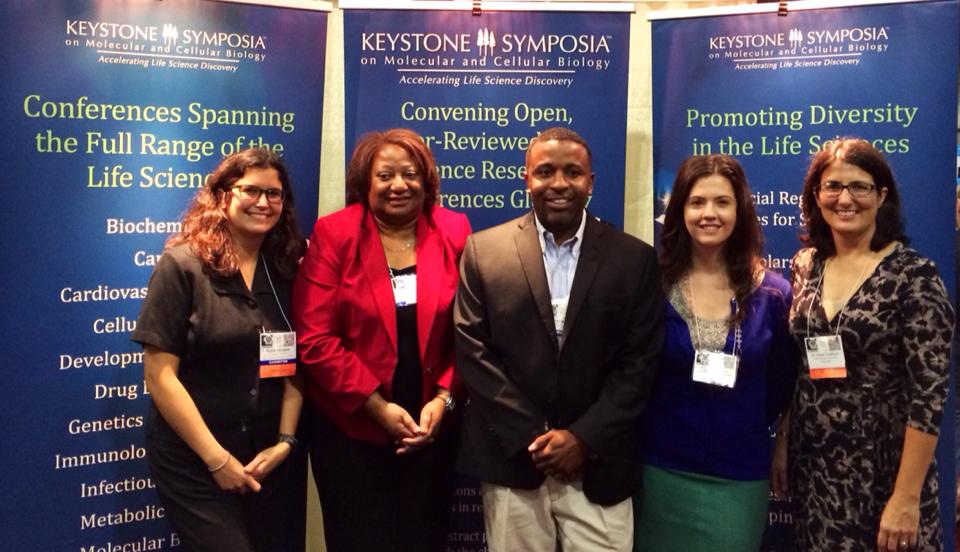
One thing that jumps to mind immediately is an enzyme Telomeres that's found on your chromosomes, it's part of your DNA, it sits on the edges of certain chromosomes and it's responsible for keeping the chromosome at it's appropriate length but as we age the enzyme changes its function and the chromosome sort of shrink and that seems to be correlated directly with the aging process. So the idea is keep that enzyme functioning well and the chromosomes don't shrink and those cells will behave just fine not necessarily undergoing the aging process. So we're trying to figure out ways to figure that out in the billions and trillions of cells in your body. So we're thinking about ways of identifying what's responsible for the aging process and then figuring out ways of targeting it so that you can minimize the aging process. Targeting a tissue that sits on your skin is very different than targeting cells that sit in your brain and so we've got to overcome those hurdles, I think in the long run we will. We are looking forward to developing drugs and things that target genetics and molecular function themselves, now having said that we already make use of some of that stuff like antioxidants, they're doing just what you're recommending. These antioxidants are helping cells process oxidized materials better and we know that hyper oxidation is directly related to an aging process of your cells. So we're learning more about the foods we eat, we're learning more about nutrition, we're trying to educate the public with this information and blueberries increase your antioxidants and these things have an effect. But I think the overriding effect of aging is going to be difficult to just change it over and effectively have us live forever which is where science and medicine is headed. So effectively we are trying to reverse the aging process so it's no longer about living to be 60 or 80, it's about living to 60 or 80 but living like you're 40 and then not dying at 80 but extending your life another 20 or 30 years. For now let's just try to improve health as we learn, so the more we learn about how the body works and what's good and bad for us, we want to integrate that into how we live. It's a push and pull about extending life, we came up with these drugs to lower cholesterol and we are now living longer but now we're seeing more brain disease because we are living longer, so it's a give and take situation.
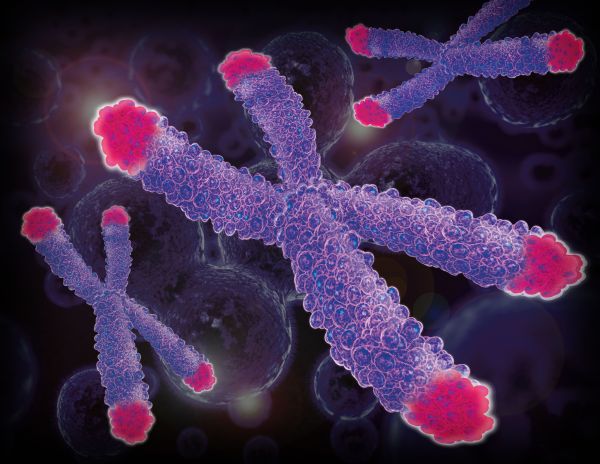
Believe it or not people like Jimi Hendrix and Prince ultimately become role models and it's more about their craft then their social activities, how they valued music, the art of playing guitar and writing music with lyrics as well. How committed they were too that craft, the work they put in to try and disseminate their music to as many people as possible. The endurance that they had. Even though Hendrix seemed like a flash for 3 years he'd been playing in bands before that for well over 10 years starting off as a teenager. Also Ben Carson, here's a guys who was the first to successfully separate adjoined twins attached at the head and we had never figured out before how to do this so that both lived and would have independent lives. Brain tissue is one of the most dense tissues in your body. There's billions and billions of cells packed together in a tight space unlike your kidney or your liver. And it controls everything and the wiring is so intricate we still don't know a small piece of it and it's controlled by chemical and electrical information so before we even know all the details this neurosurgeon who put so much time and effort and was so connected to his craft he actually figured out how he could separate this brain tissue in a way that the two individuals could live independently of each other and survive the surgery. That has always been to me an extraordinary achievement. Ultimately I admire those who are committed and focused in on perfecting and optimizing their craft and then disseminating whatever they've learned or produced to as many people as possible. I want to do the exact same thing with my science and medicine. I look back at all those who put time in and helped me out to get to where I am today, those teachers and people who came and gave lectures and I think back to what I was doing in the streets back in 1974 in Harlem and what I'm doing today and I remember that there were tons of kids just like me who were all over South Central you name it India wherever it is and so I want to be able to do the same for at least a few people that was done for me.


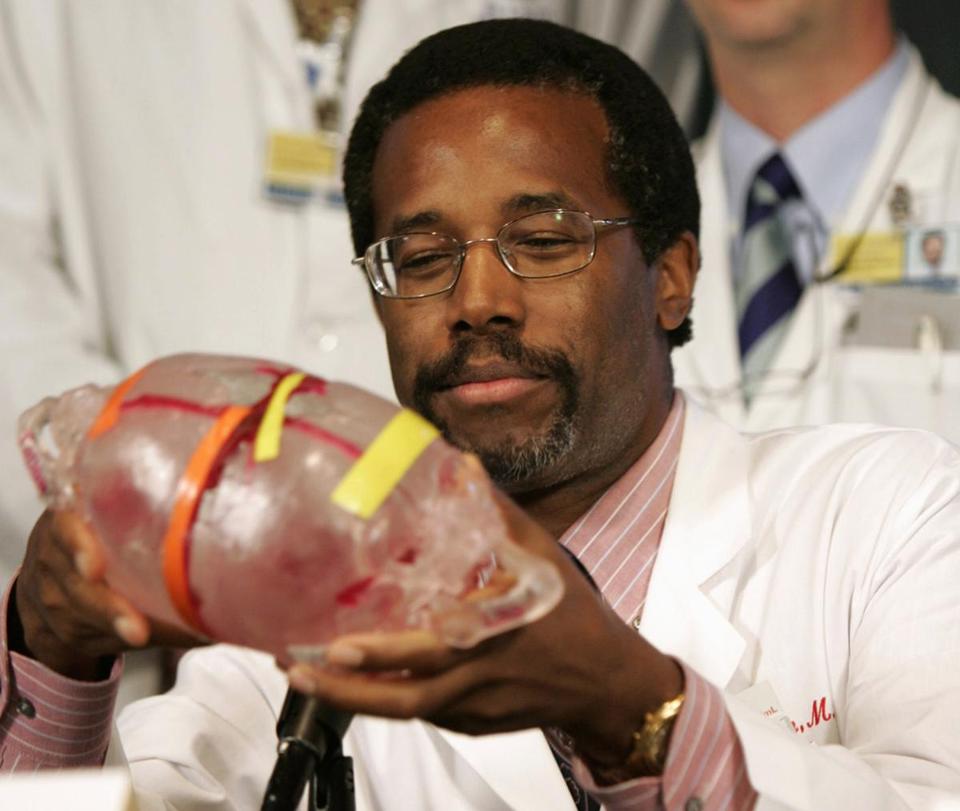
What I like most about it is really having all the tools at your disposal. I'm not in a box, most of what I do is about relationships whether it's with the partners within my company, the people I brought to my company and chose to partner with, as well as the partnerships I have outside of that trying to do distribution contracts etc. In the beginning it's all an idea in your head and you have to figure out a way to translate that to something practical. And I love that challenge and freedom if you will, being allowed to put my ideas into work and seeing it be successful. That I like a lot more than the environment I had to be in before in academic institutions where I had to be really focused in on one area and other people were responsible for other things as it was related to my research.
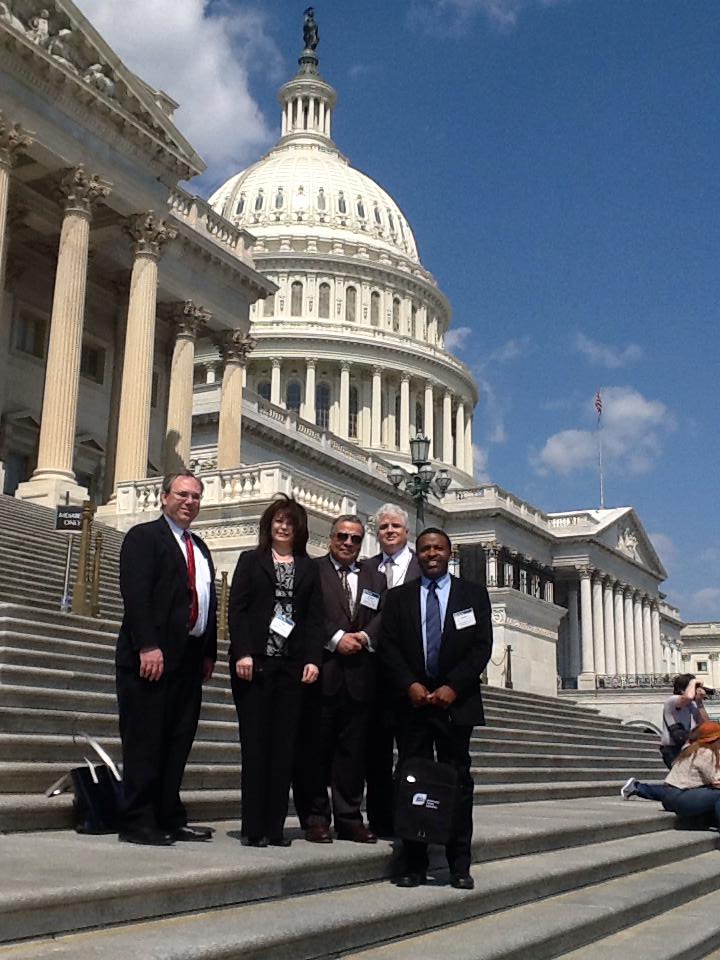
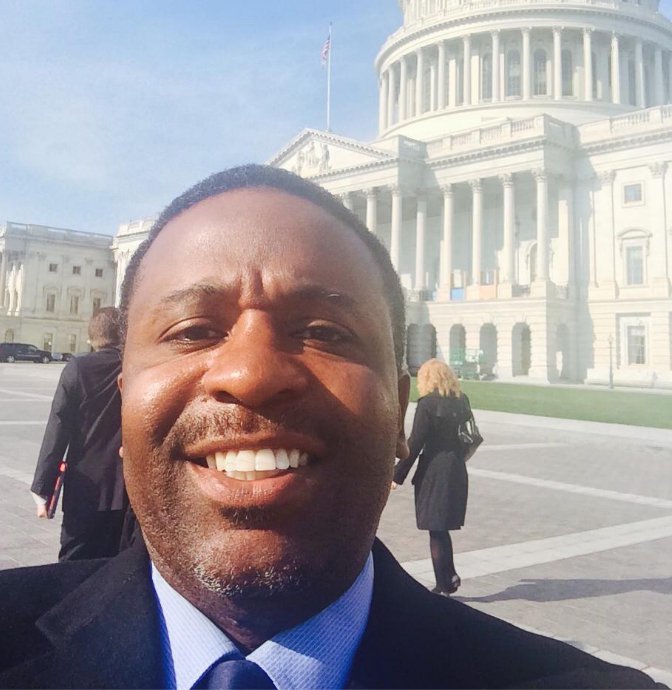
Oh, it's a community, you know I came out from New York in 1991 to go to school and I lived on the Westside right next to UCLA because that's where I went to school, and the first year or two coming from New York were like L.A.'s so different and you know I was sort of begrudgingly here, but I like to get out and check out my environment and in short order 2 neighborhoods became really interesting to me because they reminded me a lot of where I come from and that was Venice and Los Feliz, SilverLake, Echo Park area. Venice had the whole beach lifestyle and I really had a chance to appreciate that for the 10 plus years I was on the Westside and then we moved to Sweden in the early 2000's and then we came back and moved to Los Feliz and it's a community. I know people at the grocery store, at the restaurants, at the movie theater and I'm a New Yorker so I like to talk and chat with random folks and that's a lot more accepted here than in other parts of L.A. and I love that. And it's a walking area as well and you can bike ride and kids going to school together and the relationships with the families, maybe that exists in other neighborhoods but I don't hear about it as much. It's fantastic.


Facebook: http://www.facebook.com/HayleyHilton.Momentis
LinkedIn: http://www.stemvax.com
Website/Blog: http://www.gsclab.com